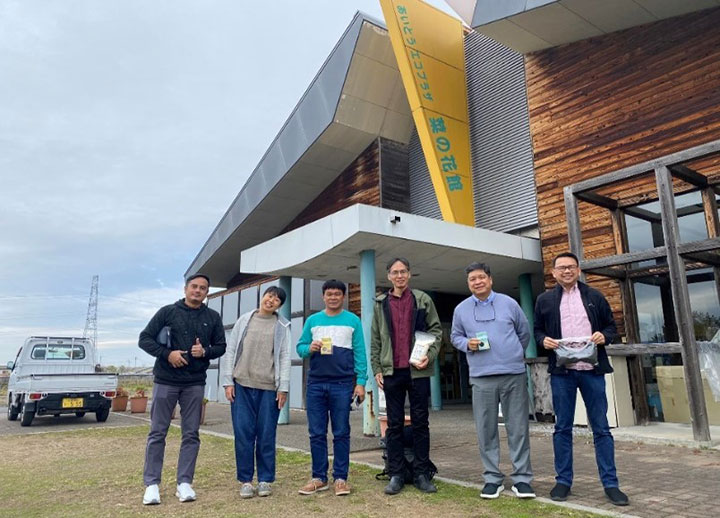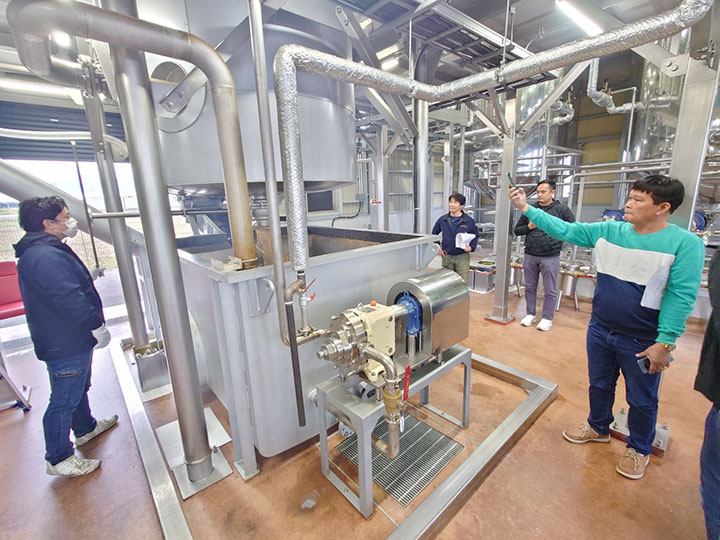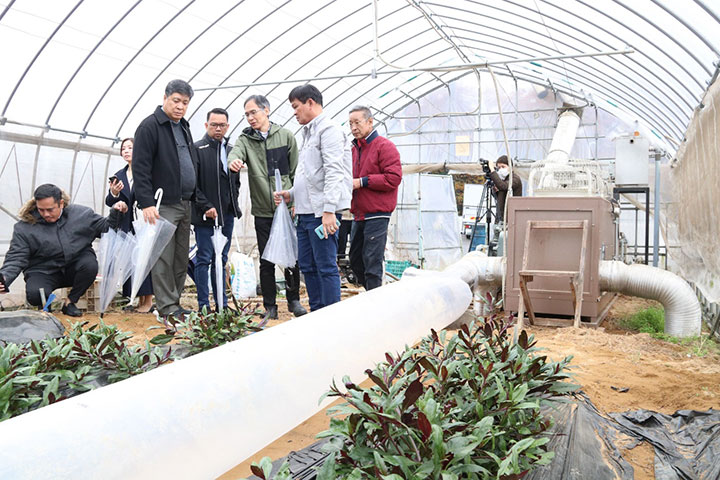Boracay strives to become Philippine’s environmentally modern island through JICA's Private Sector Partnership program
2023.12.21
In their efforts to make Boracay become an environmentally modern island, representatives from the Malay local government and the Boracay private sector joined a training in Japan to study practices in a circular economy society as part of the Japan International Cooperation Agency (JICA) Sustainable Development Goals (SDGs) Business Supporting Surveys program.
Said JICA program encourages Japanese companies to contribute to addressing various development challenges by sharing their technology, innovation, and ideas to developing countries such as the Philippines. Through this program, the partnership between JICA, the Malay local government unit (LGU) and Japanese company Kanazawa Engineering Systems, Inc. (KES) aims to pilot recycling waste cooking oil in establishments in Boracay as substitute to diesel fuel.
“I saw for myself the integrated recycling method in Japan where waste cooking oil, food wastes, and other recyclables for a business recycling model. They streamline manufacturing and processing operations of wastes using innovative technology. This has potential in places like Boracay so we can alleviate the burden on our sanitary landfills and promote sustainable tourism,” said Dante Pagsuguiron, Malay municipal council chairman for laws, ordinances, rules, and privileges.
Malay LGU has partnered with KES and JICA for a Renergy Project since 2018. This involves recycling waste cooking oil to generate electricity for e-tricycles transporting tourists and residents in the island. A charging station was also built in Barangay Yapak under the project so more tourists can explore nearby attractions like Puka Shell Beach.
In Japan, the local officials visited Higashitomi City in Shiga Prefecture, which is among the first local governments in Japan to use waste cooking oil for soap powder and biodiesel fuel. Just like what Boracay is trying to achieve, Higashitomi residents practice recycling to protect Lake Biwa and preserve its natural resources. The delegation also met with Japanese companies and associations to learn how the business sector collects waste cooking oil and reuse it for industrial inks, lubricants, and recycled fuels.
One of the delegates, Virgilio Sacdalan, Chairman of Compliance Association of Boracay and Director of Boracay Foundation Inc., said, “The visit to Japan allowed us to observe why local governments, and the private sector must invest in recycling (including facility, education, and human resource development). For example, at Yamada-Yushi Facility in Shiga Prefecture, we saw how a company collects and recycles waste cooking oil and sells it as recycled fuel to different industries.”
In all, the participants welcomed the training, saying such business recycling model is not just good for the environment, and economy but will also address the local government’s growing waste challenges.

Trainees during their visit as the Aito EcoPlaza in Higashitomi City, Shiga Prefecture.

Trainees observe the treatment process during their waste cooking oil plant tour.

Kanazawa Engineering Systems, Inc. shows how waste cooking oil is used in growing vegetables.
scroll